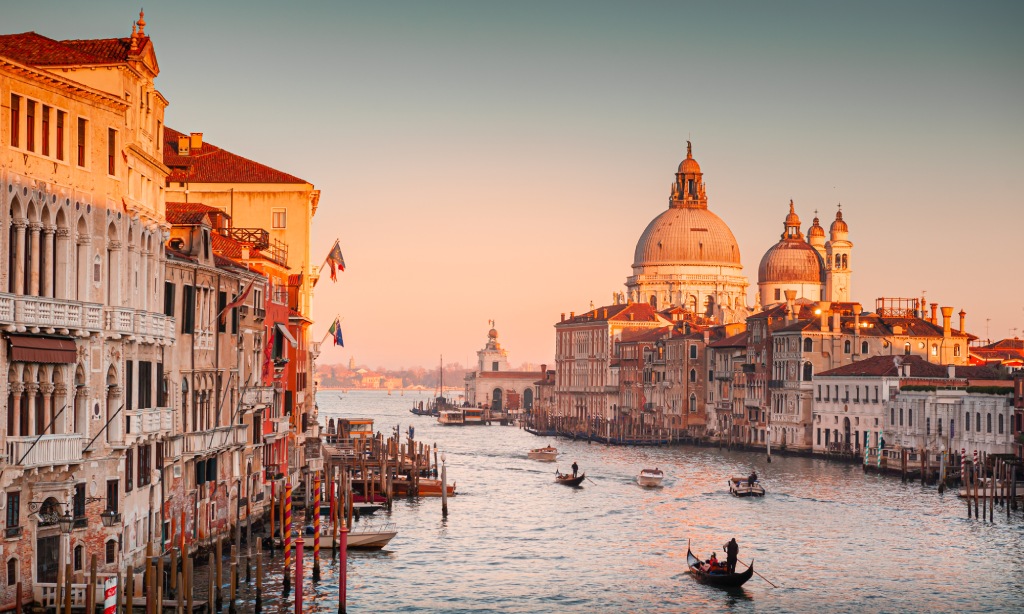From your mum’s best friend cruising around Alaska to your high school best friend getting engaged at Lake Como, it feels like everyone has taken a bucket-list trip lately. We’ve had itchy feet ever since coming out of lockdown, and it hasn’t yet gone away.
Despite the constant cost of living pressures, Aussies are continuing to fuel the post-pandemic travel boom, with 91 per cent of us planning at least one trip for 2024. The same stats are reflected around the world; international tourist numbers are expected to reach 1.5 billion this year, an increase of 17 per cent from 2023.
On the surface, this seems great. We’re stimulating the economy, we’re helping out local communities, and we’re having a blast while doing so. Well… not quite.
The threat of overtourism still looms large in headlines, after record numbers of travellers flocked to Europe this summer.
Overtourism isn’t just about massive crowds in Amsterdam or overpriced hotels on the Amalfi Coast that put a downer on your holiday. It’s about the locals of these regions who are being priced out of their homes, the 500-year-old infrastructure on islands that can’t cope with thousands of cruise ship visitors, the degradation of national parks and beaches across the world.
But to what extent is that the problem of the traveller who is just passing through?
Travel: a right or a privilege?
Travelling has always felt like not just a right, but also a rite of passage. Taking a gap year after high school or enjoying a long trip over uni break is about as Australian as chicken salt. It’s easy to plan an itinerary (or just jump on a bus tour), pass through famous tourist destinations and move on without giving the city or its residents a second thought.
Sure, we know that Santorini is struggling with over-tourism (they have 3.4 million visitors a year and a permanent population of 20,000), but do we really have to sacrifice adding it to our Euro itinerary just because it’s popular? The fact that we’re going there and injecting cash into the local economy is a good thing, right?
Right?
Do we have a responsibility to care about overtourism?
Seeing local governments implementing tourism caps and day-tripper taxes can make it feel like they’ve got the issue sorted. Since instating a daily tourist tax earlier this year, Venice has raised €2.4 million which will go toward essential city maintenance work. Love to see it.
But that doesn’t mean the issue is magically solved.
Brett Mitchell from Intrepid Travel ANZ, a small group tour company, says that while local government action can encourage us to think mindfully, that’s just a starting point. “We have a responsibility to adopt sustainable practices that protect both local communities and the environment, ensuring future generations can enjoy our planet.”
At the risk of sounding preachy, I think it really all comes down to selfishness. Maybe over-tourism won’t impact you while you’re travelling, but you’re leaving these places worse off than when you got there. I get it: it’s hard to think about future generations when you’re 20 years old and living it up in an Ibiza beach club, but that’s the whole crux of the issue.
The hope was that the pandemic would usher in a “new normal” where travellers would be more responsible and sustainability-minded. But as soon as those international borders opened in 2022, we all acted like animals escaped from the zoo, trying to cram as much travel as possible into our lives.
Ok, ok, it’s maybe not as bleak as I’m making it out to be. A Booking.com survey from 2022 found that two-thirds of people would be prepared to stay away from busy tourist sites to avoid adding to congestion, while 31 per cent would be open to visiting an alternative to their preferred destination to help avoid overcrowding.
We’re keen to do what we can.
But what can we do?
There really isn’t a magic solution, but just some simple things we can keep in mind when travelling: avoiding major hotspots, travelling in the off season, and being more selective with the activities or tours we book.
We’ve already seen a huge rise in the number of travellers visiting “lesser-known” spots across Europe: Albania instead of Italy; Turkey instead of Greece, etc. Intrepid booking data shows a similar trend, with Aussies choosing to visit off-the-beaten path spots and invest in tourism experiences that help local communities.
Brett says that mindful tourism is about visiting new and emerging destinations, booking with local suppliers, and ensuring tourist dollars stay within the community. “Intrepid makes it easier to be a mindful traveller by building responsible travel fundamentals into trips.”
The tour company also reports an increase in tourists heading to destinations that prioritise sustainability, like Costa Rica and Iceland. “This shift highlights the rising importance of environmental consciousness in travel.”
At the end of the day, you’re not going to be arrested by travel cops if you visit Venice on a cruise ship or plan a week in Santorini just so you can get an epic sunset photo. But if you genuinely love to travel, its worth taking the time and effort to consider the ways you’re seeing the world. Remember that travel really isn’t a right, it’s a privilege.
Read more stories from The Latch and subscribe to our email newsletter.







